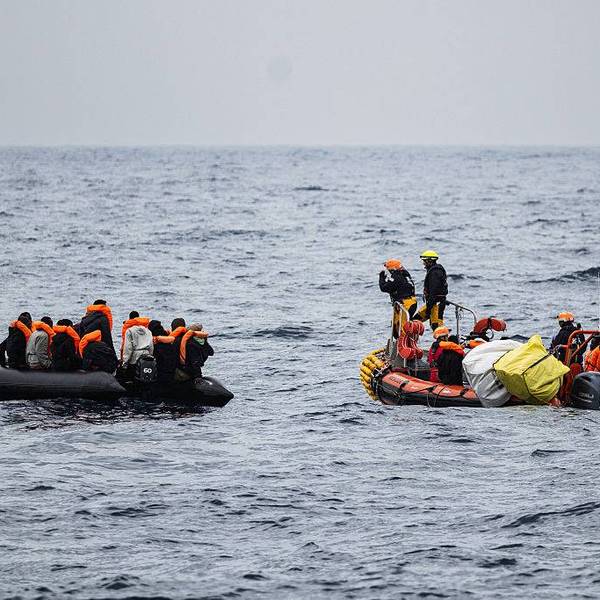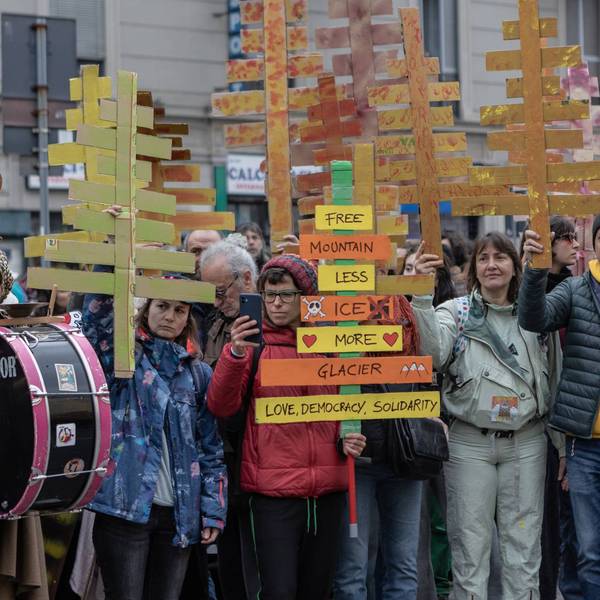A ship carrying over 450 migrants, most believed to be Syrian refugees, was rescued by Italian vessels from the Mediterranean Sea on Friday after it was abandoned by its crew in rough waters, set on a collision course for the Italian coast.
The incident marks the second time in just four days that a vessel loaded with migrants and refugees has been ditched by its crew in the Mediterranean--a body of water that has become a "graveyard" for those seeking refuge as European countries heighten restrictions while cutting relief for refugees amid skyrocketing displacement.
According to statements from Italian Coast Guard Commander Filippo Marini, the abandoned ship, named Ezideen and bearing a Sierra Leone flag, was secured and towed to Italy on Friday.
The vessel, which is believed to have embarked from a Turkish port, had been floating, without power, approximately 40 nautical miles from the coast of southern Italy. The coastguard says the ship had been directed towards the coast but then had run out of fuel.
The repeated abandonment of large vessels at sea is believed to be a brutal "new strategy" employed by human traffickers.
On Wednesday, a Moldova-registered ship carrying approximately 800 migrants, a majority of them also Syrian refugees, was abandoned by its crew and towed to Italy. Two weeks ago, a ship carrying 850 migrants was abandoned by its crew before it was aided by the Italian navy and taken to Sicily, according to media reports. The fate and location of the at least 2,100 people aboard all three of these ships is not immediately clear.
The spate of incidents follows Italy's termination in October 2014 of its one-year "Mare Nostrum" operation to rescue migrants at sea, which aided over 100,000 shipwrecked people. The cancellation of this program was widely criticized as putting "thousands of lives at risk."
"We have expressed concerns over the ending of this operation [Mare Nostrum] without a similar European search-and-rescue operation to replace it," said Vincent Cochetel, Europe Bureau Director for the United Nations Refugee Agency, in a statement issued Friday. "This will undoubtedly increase the risk for those trying to find safety in Europe."
However, European nations, including the UK, have so far refused to enact or support such a plan, in what has been slammed as a "death as deterrence" approach.
Meanwhile, from Gaza to Syria to Libya, war and poverty are driving a surge in attempts to migrate across the Mediterranean. More than 76,000 people--over 3,500 of them children--died in Syria in 2014 alone, according to figures released on Thursday by the Syrian Observatory for Human Rights.
The International Organization for Migration announced that 2014 was the most deadly year for migrants on record, with nearly 5,000 worldwide losing their lives "at sea or in remote deserts or mountains." This heavy toll was driven by death in the Mediterranean, where over 3,000 people drowned.
However, a September report by the organization notes that such data may be incomplete, as "no organization at the global level is currently responsible for systematically monitoring the number of deaths that occur."



